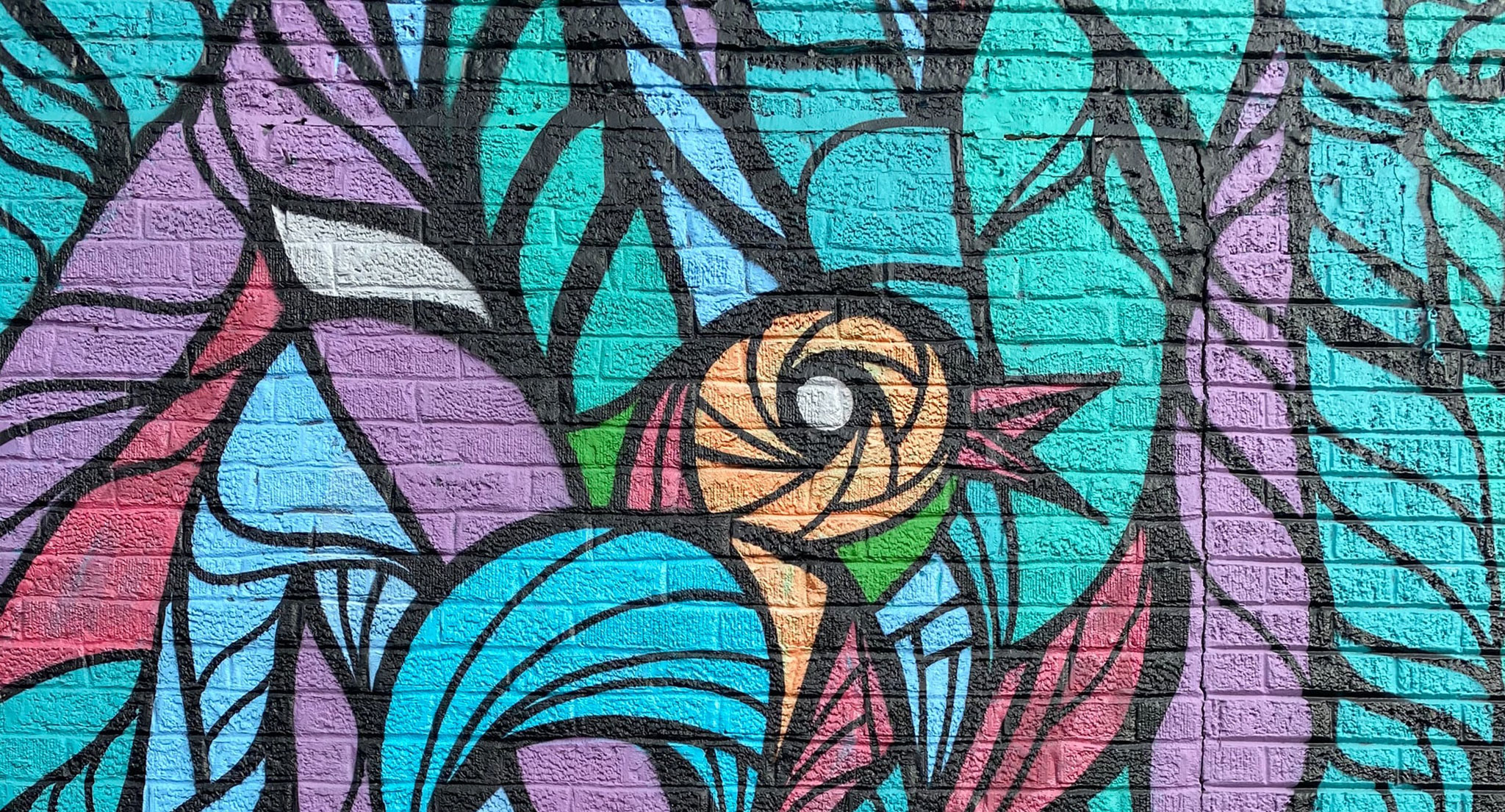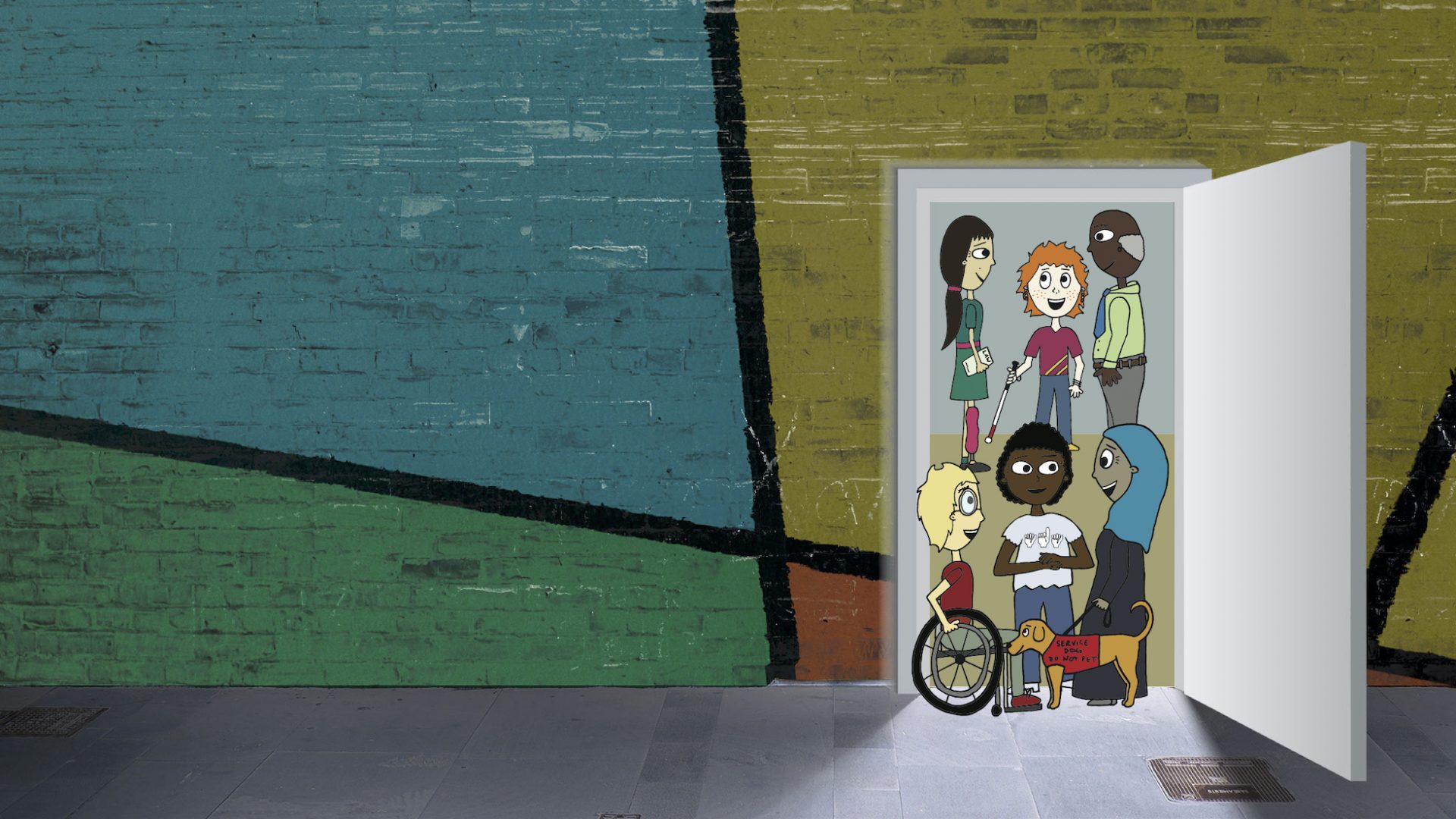But I want more than just survival. I want to transform this world… I want to defeat fascism and racist ableism and create a world where care, access, pleasure, and human creativity get to flourish, where everyone has enough… and none of us live under the constant fear of being murdered by cops and doctors.
Leah Lakshmi Piepzna-Samarasinha (Cripping The Resistance: No Revolution Without Us)
Mission
We strive for a world in which ableism and the oppressive systems it sustains (racism, white supremacy, hetero and cis patriarchy) are fully dismantled. A world in which all disabled people, Black, Indigenous, Brown and LQBTQI people thrive and are free of harm.
We believe that the fight for disability justice must be intersectional or will not be a fight for justice at all. We are committed to bringing the promise of a fully accessible and equal world to all disabled people, including those most frequently overlooked in disability and civil rights spaces due to intersecting forms of oppression. We acknowledge that the fight for equality, equity, and access has often ignored people with “invisible” disabilities, BIPOC with disabilities, and LGBTQIA+ people with disabilities.
We recognize that the movements for abolition and disability justice are intertwined. For example, the fight to de-institutionalize disabled people from psychiatric hospitals, and similar locked settings, is anti-carceral. Similarly, the fight against racist policing which targets Black disabled people most harshly is anti-ableist. We must use strategies that anticipate implications across systems, always pushing against reforms that would ultimately uphold them.
With this understanding, and the knowledge that disability justice cannot be achieved solely through the legal system, we commit to using the tools of litigation, education and coalition building to contribute to this struggle.
How AP Helps
Systemic Litigation
Systemic Litigation to bring forth systems-change litigation that is movement centered and which emphasizes an intersectional approach to disability rights. To be movement centered we will work not only with our clients, but also with the broader community that will be impacted by litigation and ensure that the perspectives of those most often marginalized in litigation and disability work are heard.
Individual Advocacy
Individual Advocacy to provide individual advocacy through technical Legal Advocacy and Technical Assistance (LATA) program. We understand that system-change litigation can often be a long and arduous process and individual advocacy can serve as a form of harm reduction while engaging in long-term struggles.
Education, Power and Coalition Building
Education, Power and Coalition Building to share knowledge and resources to aid communities in building power and provide individuals with self-advocacy tools. Lawyers and legal advocates are but one piece in the fight against ableism, our unique access to resources, legal knowledge and the legal system must be amply shared with the communities and individuals we fight along with. To build coalition with organizations, communities, and individuals who share our mission, with particular attention to partnerships which offer perspectives and strategies different from ours. We recognize the interrelatedness of movement work but also recognize our own limits, and hope to always learn from others towards the realization of justice.
Selected Casework
DLC v. CDOC
In March 2021, CREEC and the Civil Rights Clinic at the University of Denver Sturm College of Law represented Disability Law Colorado in filing a lawsuit against the Colorado Department of Corrections. The lawsuit alleges that CDOC violates the Americans with Disabilities Act (ADA) by (among other things) failing to provide sign language interpreters for medical appointments, classes, and other significant interactions; failing to provide equal access to notifications and alarms; and failing to provide and maintain hearing aids.
Mackes v. CDOC
CREEC successfully settled this lawsuit on behalf of the National Federation of the Blind and Blind incarcerated people in the Colorado Department of Correction’s custody. Read more about the settlement here.
Incarcerated people are one of the most vulnerable populations in the United States. Blind incarcerated people are even more at risk when prisons fail to provide the accommodations and technology necessary for them to be safe and have equal access to facility programs. This suit alleges that CDOC is in violation of the Americans with Disabilities Act and the Rehabilitation Act, which require that CDOC provide all inmates with equal access to programs and services, including access to written communications, legal research, and educational and vocational programming. CDOC has repeatedly failed in delivering on this mandate, denying its blind incarcerated population access to necessary programs and activities.
Tassinari v. The Salvation Army
Justice Catalyst Law, Inc. (JCL) and the Civil Rights Education and Enforcement Center (CREEC) have filed a sweeping federal lawsuit challenging the Salvation Army’s discriminatory and outdated policy and practice of denying access to necessary, doctor-prescribed medications to participants in its Adult Rehabilitation Centers (ARCs). ARCs are a nationwide network of Salvation Army programs and services geared towards drug and alcohol recovery. The suit alleges that the Salvation Army discriminates against individuals with disabilities by denying them medication-assisted treatment (MAT) in over 100 ARC programs and services across the United States.
Trivette v. TDOC
In March, 2020, CREEC and Disability Rights Tennessee (DRT) filed suit against the Tennessee Department of Correction (TDOC) in a case that demanded access to videophones and challenged other forms of discrimination against Deaf and hard of hearing people in TDOC’s custody. Despite repeated advocacy by DRT, TDOC has, for years, systematically and repeatedly denied Deaf and hard of hearing prisoners qualified sign language interpreters during critical communications involving medical care, classification, religious services, and optional and mandatory educational classes. As a result of this unlawful denial, Deaf and hard of hearing people in TDOC custody regularly do not have access to adequate health care or to critical programs and services designed to prepare them for successful reentry.
White v. Sacramento Police Department
CREEC, along with co-counsel Lawyers’ Committee for Civil Rights of the San Francisco Bay Area, brought a case against the City of Sacramento and Sacramento Police Department for their use of discriminatory and violent tactics toward racial justice protesters. In the days and weeks following George Floyd’s murder, protests against police violence and for police accountability erupted in Sacramento. In response, the Sacramento Police Department used disproportionate and illegal force against racial justice protesters, quelling free speech and perpetrating physical, psychological, and emotional harm.

Selected Presentations and Articles
Presentation at the Disability Rights Bar Association Annual Membership Meeting
This April 2022 presentation at the Disability Rights Bar Association Annual Membership Meeting focused on unraveling ableism. Pilar focused on the work of abolitionists during COVID-19 and the ways in which racial justice protesters and people in detention settings have fought for liberatory relief.
Plenary Session at Jacobus tenBroek Disability Law Symposium
The Jacobus tenBroek Disability Law Symposium Plenary Session in March 2022 explored the varied ways in which the pandemic both uncovered the ableist and discriminatory underpinnings of our society and highlighted the opportunities to think more broadly about disability justice.
Article in CUNY Law Review
Published in the 2021 Winter edition of the CUNY Law Review, Pilar co-authored the article “Movement Lawyering During a Crisis: How the Legal System Exploits the Labor of Activists and Undermines Movements.”
NAACP Legal Defense and Education Fund
In October 2020, Amy Robertson presented on the basics of Title II of the ADA and Section 504 of the Rehabilitation Act to the legal department of the NAACP LDF.
National Federation of the Blind of Colorado
In October 2020, we attended the [virtual] National Federation of the Blind of Colorado’s (NFBCO) annual conference. We were exhibitors there and discussed CREEC’s recent work with attendees from around the state.

